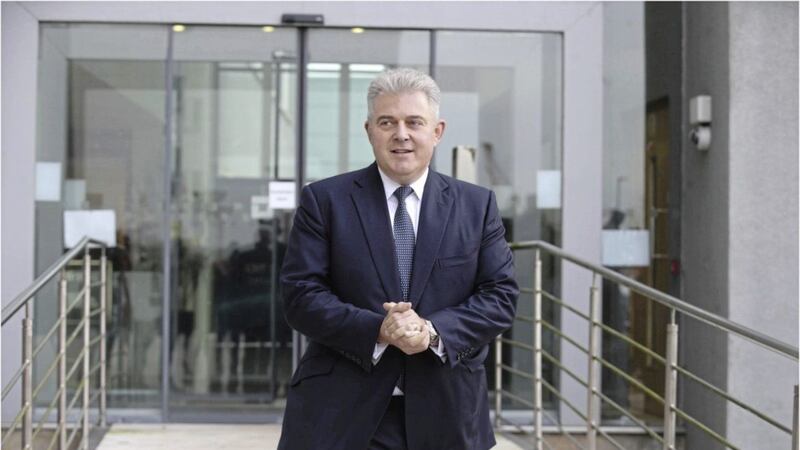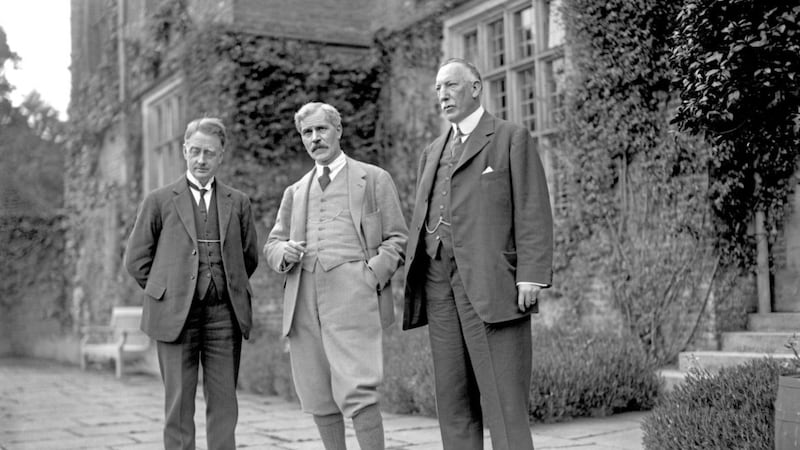Once again Charles de Gaulle, the greatest Frenchman of the twentieth century, is going to be proved correct in his judgment of the British, though he preferred to call them English.
After bitter experience over thirty years he wrote in his memoirs: ‘For England, there is no alliance that would hold, no treaty respected, no truth which matters.’ The latest casualty looks likely to be the Irish Protocol in the Withdrawal Agreement.
You could take a charitable view of it and say that Boris Johnson, never a man for detail, doesn’t understand the fine print of what he agreed in October. As far as he was concerned he’d got a deal with no border in Ireland that satisfied the EU and could go for a general election to ‘Get Brexit Done’.
You could take that view, but you’d be wrong. Johnson has a well established record to rival Trump’s as a serial liar, chancer and spoofer. His most recent example was having his ovine cabinet chant ‘Forty’ for the number of new hospitals planned, when the truth is six. In the same vein whenever asked about his deal with the EU in the election campaign he always responded there would be no border in the Irish Sea. That’s a mantra he has now required all his new cabinet to intone.
Our new proconsul, whose only qualification appears to be his eagerness to toe Johnson’s line along with the platoon of performing poodles appointed to cabinet last week, duly intoned the Johnson mantra as soon as he stepped off the plane. ‘We are absolutely clear as a UK government we will not be having a border down the Irish Sea.’ The obvious question then is, if not down the Irish Sea, then where will it be, for a trade border there must be. Cairnryan, Stranraer, Liverpool?
However, the matter is much more serious than a junior member of the cabinet trotting out a memorised party line.
Dominic Raab, one of the nastier figures in this very nasty British government, told Sky News that checks and controls were, ‘in direct conflict not just with the Withdrawal Agreement (WA) but with the Political Declaration’. This assertion is manifest nonsense. Apart from the requirement being in black and white in the WA, it’s a legal requirement, not just an opinion. Furthermore, EU officials regard the WA as an international treaty in force since February 1 when the UK officially left the EU.
Worse, RTÉ’s EU expert, Tony Connolly, reports that the EU and UK are ‘poles apart’ on the WA. The British intend to use the Joint Committee which is to establish procedures for checks on goods from the UK as a place to water down the checks and controls. For its part, the EU says those procedures have already been negotiated and are legally binding. The Joint Committee is not for renegotiating the WA. There is an ominous indication in the New Decade, New Approach (NDNA) document that the British believe they can tinker with the WA. The NDNA says that in the Joint Committee, ‘we will aim to negotiate with the European Union additional flexibilities and sensible practical measures across all aspects of the Protocol…’. The EU says the ‘practical measures’ are already negotiated and in the WA, therefore are legal requirements which can’t be renegotiated.
The real danger for the north is that the British really have no intention of implementing checks and controls. After all, Johnson advised traders to tear up any forms. If the British refuse to apply the terms of the WA, would Stormont apply them at Larne, Warrenpoint and airports? If neither the British nor Stormont does, then the EU will require them to be carried out, but how? Article 12(4) of the Protocol stipulates that the European Court of Justice has jurisdiction in disputes about the treaty, but the British are determined not to recognise the ECJ. Moral: take De Gaulle’s advice.









